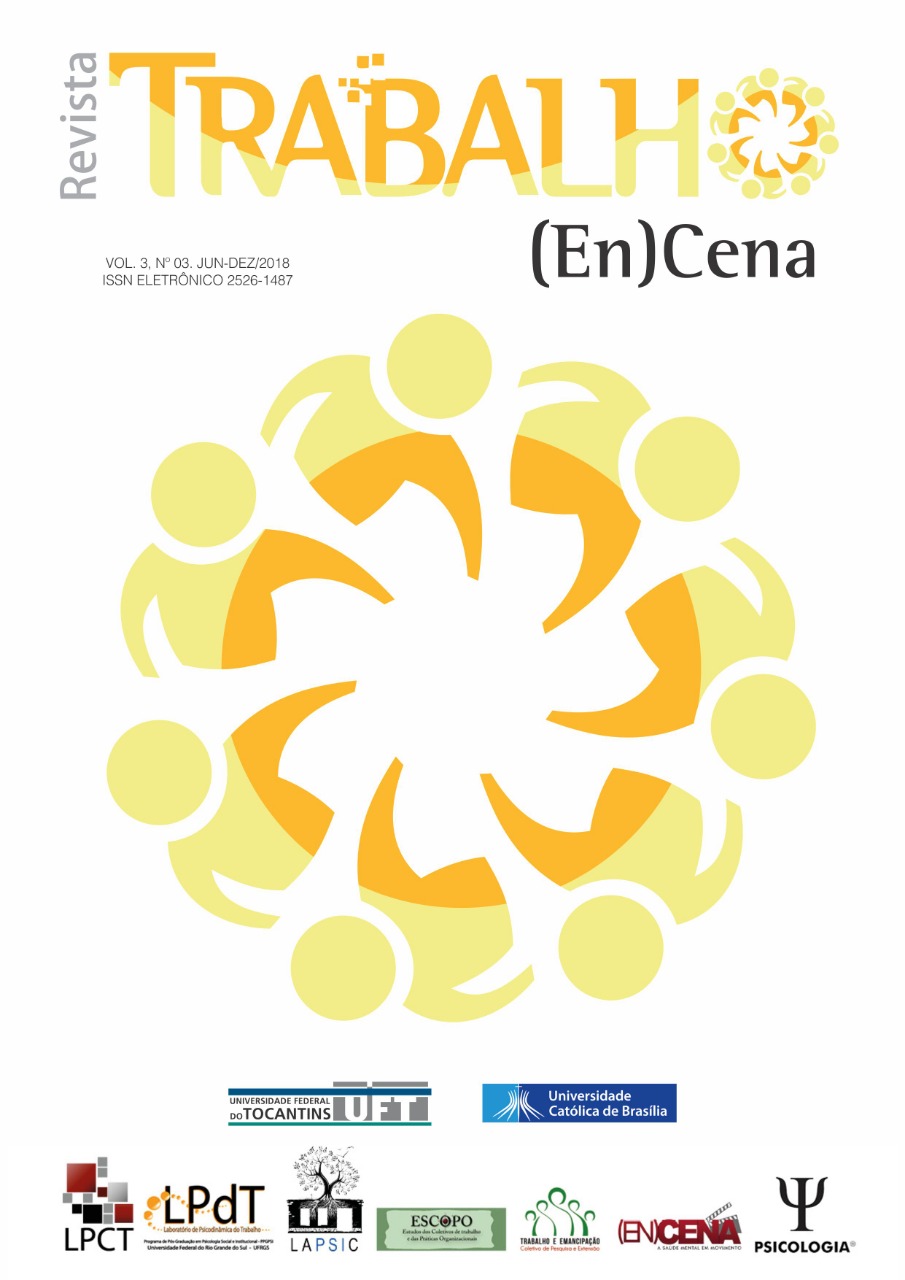PLAZO Y SUFRIMIENTO DE TRABAJADORES EN LA INDUSTRIA METALÚRGICA EN PROCEDIMIENTO DE DEMISIÓN
DOI:
https://doi.org/10.20873/2526-1487V3N3P4Resumen
This study aims to investigate the dynamics of pleasure and suffering for workers who have been massively dismissed, with a total of 390 workers, and who continue with their late termination rights. The object of study is focused on a metal mechanic company in the municipality of Erechim - RS. It is based on the importance of researching health and illness at work for these workers, considering that even if dismissed, they are linked to the company due to the wage arrears. The qualitative method was used, performing semi-structured interviews with dismissed workers and analyzed in the light of Work Psychodynamics. With regard to the sources of pleasure and suffering, the studies pointed out that the experiences of pleasure may be related to the receipt of the portion of the rescission value and the sources of suffering, related to the way the workers were dismissed and the lack of compliance with the agreement causing delays salaries. Keywords: Work Psychodynamics. Mechanical Metal Industry. Unemployment.
Descargas
Publicado
Cómo citar
Número
Sección
Licencia
Os direitos autorais dos artigos publicados pela Revista Trabalho EnCena permanecem propriedade dos autores, que cedem o direito de primeira publicação à revista. Os autores devem reconhecer a revista em publicações posteriores do manuscrito. O conteúdo da Revista Trabalho EnCena está sob a Licença Creative Commons de publicação em Acesso Aberto. É de responsabilidade dos autores não ter a duplicação de publicação ou tradução de artigo já publicado em outro periódico ou como capítulo de livro. A Revista Trabalho EnCena não aceita submissões que estejam tramitando em outra Revista. A Revista Trabalho EnCena exige contribuições significativas na concepção e/ou desenvolvimento da pesquisa e/ou redação do manuscrito e obrigatoriamente na revisão e aprovação da versão final. Independente da contribuição, todos os autores são igualmente responsáveis pelo artigo.






